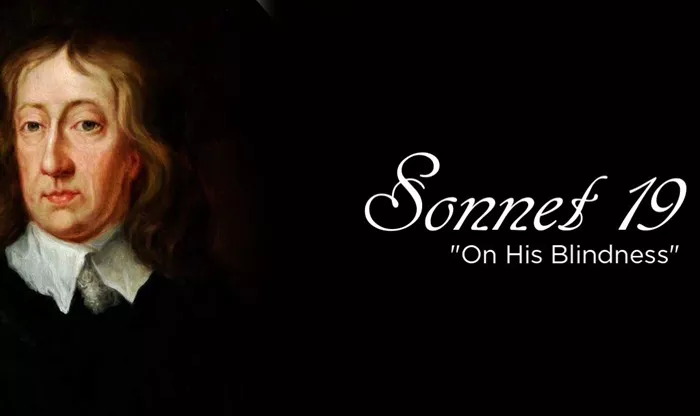Welcome to Poem of the Day – On His Blindness by John Milton
John Milton’s “On His Blindness” is a deeply introspective sonnet that reflects the poet’s feelings about his blindness and his relationship with God. Written in 1655, the poem explores themes of faith, personal loss, and divine purpose. It is a work of great emotional depth and spiritual insight. Milton, who was blind at the time, conveys his struggle with his disability while also expressing his devotion to God.
On His Blindness Poem
When I consider how my light is spent,
Ere half my days, in this dark world and wide,
And that one Talent which is death to hide
Lodged with me useless, though my Soul more bent
To serve therewith my Maker, and present
My true account, lest he returning chide;
“Doth God exact day-labour, light denied?”
I fondly ask. But patience, to prevent
That murmur, soon replies, “God doth not need
Either man’s work or his own gifts; who best
Bear his mild yoke, they serve him best. His state
Is Kingly. Thousands at his bidding speed
And post o’er Land and Ocean without rest:
They also serve who only stand and wait.”
On His Blindness Explanation
Understanding the Poem
“On His Blindness” is written in the form of a Petrarchan sonnet, a 14-line poem divided into an octave (the first eight lines) and a sestet (the final six lines). The poem is filled with questions and reflections on the poet’s condition and his spiritual dilemma.
The First Eight Lines
Milton begins by acknowledging his blindness, saying it has come at a time when he can no longer use his sight to serve God through his writing. The first eight lines express his frustration with this condition, as he feels he is now unable to fulfill his life’s purpose, which he believed was to write and inspire others through his work.
The line “When I consider how my light is spent” refers to his sight, and “light” here is a metaphor for the ability to see, both literally and figuratively. Milton wonders if his blindness means that he has lost his chance to serve God in the way he had intended. He is troubled by the thought that he might be wasting his talents or that he is being punished.
The Last Six Lines
In the final six lines, Milton resolves his inner conflict. He realizes that God does not need human actions to accomplish His divine will. The poet comes to understand that those who serve God do so not necessarily through visible actions but through faith and patience. The last lines convey a sense of peace and acceptance, as Milton concludes that God values the intention and the heart over physical deeds.
The poem’s final message is that God’s purpose will be fulfilled regardless of one’s physical condition. Milton finds solace in the idea that those who are devoted to God will still find a way to serve, even if they cannot do so in the way they originally planned.
The Central Theme of Faith
The main theme of “On His Blindness” is faith and how it interacts with human limitations. The poem suggests that human beings are not meant to understand the full extent of God’s will. Milton’s acceptance of his blindness is symbolic of his acceptance of God’s plan. He recognizes that God’s work is not hindered by human disabilities, and his personal loss becomes an opportunity for spiritual growth.
Milton’s Personal Struggle
Milton wrote this poem during a challenging period in his life. His blindness, which had developed gradually, was a major source of emotional pain for him. The poem reflects his internal battle between despair and faith. It provides an honest portrayal of how individuals may struggle with adversity but ultimately find peace through acceptance and trust in God.
Conclusion
“On His Blindness” is a profound reflection on human suffering and divine purpose. Through the poet’s personal experience, Milton teaches the reader that one’s value is not determined by the physical ability to act but by the strength of their faith and the sincerity of their devotion. It is a timeless meditation on the challenges of life and the importance of spiritual acceptance in the face of hardship.

